Project Staff
Principal Investigators
 Andy Finch, PhD, is an Associate Professor of the Practice in the department of Human and Organizational Development at Peabody College, Vanderbilt University. Andy is a leader in the development and research of recovery high schools in the United States, and he is a co-founder of the Association of Recovery Schools. For nine years, Dr. Finch worked for Community High School in Nashville, one of the early schools for teens recovering from alcohol and other drug addictions and a school he helped design. Dr. Finch is a National Certified Counselor and a licensed professional school counselor in Tennessee. He collaborated with Drs. Moberg and Winters in a prior NIH/NIDA R21 grant on recovery schools. Dr. Finch has expertise on the overall historical development and operation of Recovery Schools, and has extensive professional contacts with the participating schools. His role on the project includes convening and coordinating work across multiple sites, leading negotiations with schools, and analyzing data regarding school operations and curriculum. Dr. Finch also participates in process evaluation site visits and analysis of qualitative data.
Andy Finch, PhD, is an Associate Professor of the Practice in the department of Human and Organizational Development at Peabody College, Vanderbilt University. Andy is a leader in the development and research of recovery high schools in the United States, and he is a co-founder of the Association of Recovery Schools. For nine years, Dr. Finch worked for Community High School in Nashville, one of the early schools for teens recovering from alcohol and other drug addictions and a school he helped design. Dr. Finch is a National Certified Counselor and a licensed professional school counselor in Tennessee. He collaborated with Drs. Moberg and Winters in a prior NIH/NIDA R21 grant on recovery schools. Dr. Finch has expertise on the overall historical development and operation of Recovery Schools, and has extensive professional contacts with the participating schools. His role on the project includes convening and coordinating work across multiple sites, leading negotiations with schools, and analyzing data regarding school operations and curriculum. Dr. Finch also participates in process evaluation site visits and analysis of qualitative data.
 Paul Moberg, PhD, is a Research Professor in the Department of Population Health Sciences in the University of Wisconsin, School of Medicine and Public Health and the Senior Faculty Advisor for the Evaluation Research Group within the UW Population Health Institute. He also serves as Director of Evaluation for the UW’s Institute for Clinical Translational Research (CTSA), and as Co-Investigator for the Evaluation and Surveillance Program of the Obesity Prevention Initiative. Paul’s PhD was earned in sociology with a minor in evaluation research. He has been involved in evaluation research for over 40 years. His work has been funded by numerous federal, state and local organizations and foundations, including the National Institute on Drug Abuse, the Centers for Disease Control and Prevention, the Substance Abuse and Mental Health Services Administration and the Robert Wood Johnson Foundation. While Paul’s professional identity is that of an evaluation research practitioner, his substantive research and publications have focused on health promotion, prevention and intervention programs for children and adolescents; substance abuse treatment; maternal and child health; school health and geriatric services. His major areas of funded research have been substance abuse prevention with funding from NIDA, SAMHSA and the CDC, and Recovery High Schools, which he has been studying since 1992 with funding from the Robert Wood Johnson Foundation and the National Institute on Drug Abuse.
Paul Moberg, PhD, is a Research Professor in the Department of Population Health Sciences in the University of Wisconsin, School of Medicine and Public Health and the Senior Faculty Advisor for the Evaluation Research Group within the UW Population Health Institute. He also serves as Director of Evaluation for the UW’s Institute for Clinical Translational Research (CTSA), and as Co-Investigator for the Evaluation and Surveillance Program of the Obesity Prevention Initiative. Paul’s PhD was earned in sociology with a minor in evaluation research. He has been involved in evaluation research for over 40 years. His work has been funded by numerous federal, state and local organizations and foundations, including the National Institute on Drug Abuse, the Centers for Disease Control and Prevention, the Substance Abuse and Mental Health Services Administration and the Robert Wood Johnson Foundation. While Paul’s professional identity is that of an evaluation research practitioner, his substantive research and publications have focused on health promotion, prevention and intervention programs for children and adolescents; substance abuse treatment; maternal and child health; school health and geriatric services. His major areas of funded research have been substance abuse prevention with funding from NIDA, SAMHSA and the CDC, and Recovery High Schools, which he has been studying since 1992 with funding from the Robert Wood Johnson Foundation and the National Institute on Drug Abuse.
 Sheila Specker, MD, is an Associate Professor in the Department of Psychiatry at the University of Minnesota. Her research Interests include substance abuse and related compulsive behaviors with co-morbid conditions, especially in women, medication development for substances of abuse, and health care professionals with substance user psychiatric disorders. Dr. Specker joined the project in its final year and helped with the final stages of data collection and analysis.
Sheila Specker, MD, is an Associate Professor in the Department of Psychiatry at the University of Minnesota. Her research Interests include substance abuse and related compulsive behaviors with co-morbid conditions, especially in women, medication development for substances of abuse, and health care professionals with substance user psychiatric disorders. Dr. Specker joined the project in its final year and helped with the final stages of data collection and analysis.
Data Analysis and Management
 Mark Lipsey, PhD, is a Professor and Immediate Past Director of the Peabody Research Institute at Vanderbilt University. His professional interests are in the areas of public policy, program evaluation research, social intervention, field research methodology, and research synthesis (meta-analysis). The topics of his recent research have been risk and intervention for juvenile delinquency and substance use, early childhood education programs, and issues of methodological quality in program evaluation research. Dr. Lipsey serves on the editorial boards of Evaluation and Program Planning, Psychological Bulletin, the Journal of Experimental Criminology, and the American Journal of Community Psychology, and boards or committees of, among others, the National Research Council, the Department of Education What Works Clearinghouse, Campbell Collaboration, and Blueprints for Violence Prevention. He is a recipient of the American Evaluation Association’s Paul Lazarsfeld Award, the Society of Prevention Research’s Nan Tobler Award, a Fellow of the American Psychological Society, and co-author of the program evaluation textbook, Evaluation: A Systematic Approach and the meta-analysis primer, Practical Meta-Analysis. Dr. Lipsey serves on the current project as a consulting methodologist. Dr. Lipsey and his staff at the Peabody Research Institute conduct complex data analysis and statistical modeling. He also provides some of the supervision for the data manager, advises on the statistical analysis, and participates in reporting the results for publication.
Mark Lipsey, PhD, is a Professor and Immediate Past Director of the Peabody Research Institute at Vanderbilt University. His professional interests are in the areas of public policy, program evaluation research, social intervention, field research methodology, and research synthesis (meta-analysis). The topics of his recent research have been risk and intervention for juvenile delinquency and substance use, early childhood education programs, and issues of methodological quality in program evaluation research. Dr. Lipsey serves on the editorial boards of Evaluation and Program Planning, Psychological Bulletin, the Journal of Experimental Criminology, and the American Journal of Community Psychology, and boards or committees of, among others, the National Research Council, the Department of Education What Works Clearinghouse, Campbell Collaboration, and Blueprints for Violence Prevention. He is a recipient of the American Evaluation Association’s Paul Lazarsfeld Award, the Society of Prevention Research’s Nan Tobler Award, a Fellow of the American Psychological Society, and co-author of the program evaluation textbook, Evaluation: A Systematic Approach and the meta-analysis primer, Practical Meta-Analysis. Dr. Lipsey serves on the current project as a consulting methodologist. Dr. Lipsey and his staff at the Peabody Research Institute conduct complex data analysis and statistical modeling. He also provides some of the supervision for the data manager, advises on the statistical analysis, and participates in reporting the results for publication.
 Emily Tanner-Smith, PhD, is an Associate Professor and Associate Dean for Research in the College of Education at the University of Oregon, with appointments in the Counseling Psychology and Human Services Department and the Prevention Science Institute. Her Ph.D. is in sociology from Vanderbilt University with an emphasis on quantitative methods and statistics. She is an applied research methodologist with expertise in meta-analysis and research synthesis for evidence-based decision-making. Her scholarship focuses broadly on the prevention and treatment of substance use, delinquency, mental health, and academic problems among youth. She was awarded the Nan Tobler Award from the Society for Prevention Research in honor of her research synthesis contributions to the field of prevention science. Dr. Tanner-Smith serves as a Features Editor for Research Synthesis Methods and previously served as a methods editor for Campbell Systematic Reviews and Systematic Reviews. Her research has been funded by numerous foundations, state, and federal agencies, including the Institute of Education Sciences, National Institute on Drug Abuse, National Institute on Alcohol Abuse and Alcoholism, National Institute of Justice, and the Office of Juvenile Justice and Delinquency Prevention.
Emily Tanner-Smith, PhD, is an Associate Professor and Associate Dean for Research in the College of Education at the University of Oregon, with appointments in the Counseling Psychology and Human Services Department and the Prevention Science Institute. Her Ph.D. is in sociology from Vanderbilt University with an emphasis on quantitative methods and statistics. She is an applied research methodologist with expertise in meta-analysis and research synthesis for evidence-based decision-making. Her scholarship focuses broadly on the prevention and treatment of substance use, delinquency, mental health, and academic problems among youth. She was awarded the Nan Tobler Award from the Society for Prevention Research in honor of her research synthesis contributions to the field of prevention science. Dr. Tanner-Smith serves as a Features Editor for Research Synthesis Methods and previously served as a methods editor for Campbell Systematic Reviews and Systematic Reviews. Her research has been funded by numerous foundations, state, and federal agencies, including the Institute of Education Sciences, National Institute on Drug Abuse, National Institute on Alcohol Abuse and Alcoholism, National Institute of Justice, and the Office of Juvenile Justice and Delinquency Prevention.
 Katarzyna Steinka-Fry is a Research Specialist at the Peabody Research Institute at Vanderbilt University. She received her Master’s degree in Sociology from the University of Gdansk, Poland in 2006 and Master’s in Public Administration from Augusta State University in 2008. She began her research career with the Sociology Department at Augusta State University in 2004 and has collected and managed data for various evaluation studies in the areas of education, social, and health services while at Augusta State and, since January 2009, at Peabody Research Institute. Katarzyna works with Dr. Tanner-Smith and the team to assist in project data cleaning and maintenance.
Katarzyna Steinka-Fry is a Research Specialist at the Peabody Research Institute at Vanderbilt University. She received her Master’s degree in Sociology from the University of Gdansk, Poland in 2006 and Master’s in Public Administration from Augusta State University in 2008. She began her research career with the Sociology Department at Augusta State University in 2004 and has collected and managed data for various evaluation studies in the areas of education, social, and health services while at Augusta State and, since January 2009, at Peabody Research Institute. Katarzyna works with Dr. Tanner-Smith and the team to assist in project data cleaning and maintenance.
Cost-Benefit Analysis
 David Weimer, PhD, is the Edwin E. Witte Professor of Political Economy at the University of Wisconsin-Madison. His research focuses broadly on policy craft and institutional design. Although most of his recent research has addressed issues in health policy, he has done policy-relevant research in the areas of energy security, natural resource policy, education, criminal justice, and research methods. In 2006, Weimer served as president of the Association for Public Policy Analysis and Management. In 2008, he was elected a Fellow of the National Academy of Public Administration, and in 2013 he served as president of the Society for Benefit-Cost Analysis. He received his doctorate in public policy from the University of California, Berkeley. He is a faculty affiliate of UW-Madison’s Center for Demography of Health and Aging.
David Weimer, PhD, is the Edwin E. Witte Professor of Political Economy at the University of Wisconsin-Madison. His research focuses broadly on policy craft and institutional design. Although most of his recent research has addressed issues in health policy, he has done policy-relevant research in the areas of energy security, natural resource policy, education, criminal justice, and research methods. In 2006, Weimer served as president of the Association for Public Policy Analysis and Management. In 2008, he was elected a Fellow of the National Academy of Public Administration, and in 2013 he served as president of the Society for Benefit-Cost Analysis. He received his doctorate in public policy from the University of California, Berkeley. He is a faculty affiliate of UW-Madison’s Center for Demography of Health and Aging.
Research and Data Collection Teams
Minnesota
 Andria M. Botzet, MA, worked in the Center for Adolescent Substance Abuse Research at the University of Minnesota for over 20 years, conducting assessments and interventions on youth with drug and gambling addictions. She received her BA and MA in Counseling Psychology from the University of Minnesota. Ms. Botzet has also published several research articles on addictions, and has been involved with multiple community organizations in roles that serve youth. Andria worked collaboratively with the team to develop the measurement battery for each assessment point and to manage data collection and other study logistical processes.
Andria M. Botzet, MA, worked in the Center for Adolescent Substance Abuse Research at the University of Minnesota for over 20 years, conducting assessments and interventions on youth with drug and gambling addictions. She received her BA and MA in Counseling Psychology from the University of Minnesota. Ms. Botzet has also published several research articles on addictions, and has been involved with multiple community organizations in roles that serve youth. Andria worked collaboratively with the team to develop the measurement battery for each assessment point and to manage data collection and other study logistical processes.
 Christine Dittel received her Bachelor Degree from the University of Wisconsin in 1991 and started working at the University of Minnesota that same year. She began her research career with the Center for Adolescent Substance Abuse, then spent 14 years coordinating and administering clinical trials and treatment projects with the Eating Disorders Research Group. Christine has authored several articles throughout her time at the Department of Psychiatry. She has enjoyed reuniting with her previous research group over the last few years and conducting assessments on youth and adults with various addictions. Christine assists with recruitment and conducts assessments at each measurement point. She also assists with data cleaning and data entry tasks and will assist with future manuscript preparation.
Christine Dittel received her Bachelor Degree from the University of Wisconsin in 1991 and started working at the University of Minnesota that same year. She began her research career with the Center for Adolescent Substance Abuse, then spent 14 years coordinating and administering clinical trials and treatment projects with the Eating Disorders Research Group. Christine has authored several articles throughout her time at the Department of Psychiatry. She has enjoyed reuniting with her previous research group over the last few years and conducting assessments on youth and adults with various addictions. Christine assists with recruitment and conducts assessments at each measurement point. She also assists with data cleaning and data entry tasks and will assist with future manuscript preparation.
Tennessee
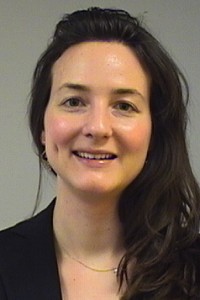 Emily A. Hennessy, PhD, is a Postdoctoral Research Associate at the University of Connecticut. She received her doctorate in the Community Research and Action Ph.D. program at Vanderbilt University in the Peabody College of Education and Human Development. She earned her bachelor’s degree in Psychology at Gordon College, Wenham, MA. She then earned her master’s degree in the Philosophy of Health Promotion at the University of Bergen in Norway, where she was also a Fulbright Scholar studying nutrition opportunities in school settings. Her research interests center on adolescent health and development and mechanisms of behavior change and she has authored several publications on brief alcohol interventions. For the Recovery High School project, she participated in local site visits and interviewed staff at treatment centers, recovery schools, and traditional schools. She also engaged in qualitative and quantitative data analysis, preparation of manuscripts for publication, review of relevant literature, and presentation at national conferences.
Emily A. Hennessy, PhD, is a Postdoctoral Research Associate at the University of Connecticut. She received her doctorate in the Community Research and Action Ph.D. program at Vanderbilt University in the Peabody College of Education and Human Development. She earned her bachelor’s degree in Psychology at Gordon College, Wenham, MA. She then earned her master’s degree in the Philosophy of Health Promotion at the University of Bergen in Norway, where she was also a Fulbright Scholar studying nutrition opportunities in school settings. Her research interests center on adolescent health and development and mechanisms of behavior change and she has authored several publications on brief alcohol interventions. For the Recovery High School project, she participated in local site visits and interviewed staff at treatment centers, recovery schools, and traditional schools. She also engaged in qualitative and quantitative data analysis, preparation of manuscripts for publication, review of relevant literature, and presentation at national conferences.
Texas
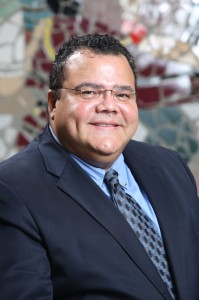
Luis R. Torres, Ph.D., is the Associate Dean of Research and Strategic Partnerships and Associate Professor in the Graduate College of Social Work at The University of Houston, and a researcher with both the Center for Drug and Social Policy Research and the Child and Family Center for Innovative Research. Prior to coming to the University of Houston, Dr. Torres completed a two year, National Institute of Drug Abuse (NIDA)-funded Post-Doctoral Research Fellowship in The George Warren Brown School of Social Work at Washington University in St. Louis. His research agenda focuses on health disparities, specifically co-occurring mental health, substance use and medical disorders in Hispanics, and on family-strengthening efforts with a focus on Hispanic communities. He is currently the Project Director of a NIDA-funded study examining health consequences of long-term injection heroin use in aging Mexican American men. Dr. Torres is also Co-Principal Investigator in a national implementation evaluation of grantees in the federal Hispanic Healthy Marriage Initiative, focusing on issues of cultural resonance and cultural adaptations, and Co-Principal Investigator in a national study examining programs that serve Hispanic fathers. He was just awarded a 3-year grant from the Substance Abuse and Mental Health Services Administration to do screening, navigation into care, and prevention of mental illness, substance use, and HIV/AIDS among Hispanic and African American students ages 18 to 24 at the University of Houston, and among Hispanics and African Americans ages 18 to 24 in the communities surrounding the university. Dr. Torres, a native of Puerto Rico, has a doctorate in clinical psychology from Fordham University in New York City and over 20 years of clinical, administrative, and research experience.

Barbara Dwyer is focused on supporting families who are living with the disease of adolescent addiction. She is personally connected to this cause as a result of witnessing how the disease of addiction affected members of her own family including her grandparents, her father and her son. While learning how to parent an adolescent addict, Barbara’s family became actively involved with Cornerstone Recovery and she served as the group’s Parent Coordinator. Barbara serves on the Executive Board for Archway Academy, a sober high school in Houston, Texas. She is the Chairman of the Board for the Center for Success and Independence, a residential treatment center in Houston. Barbara co-founded ParentSupportHouston.com, a website that provides contact information for resources available to families facing addiction with their adolescents. She has been invited to speak at various fundraising events to share her experience and has been interviewed on the radio to bring community awareness to several of the organizations that she supports. Barbara is currently working to create Cougars in Recovery, the collegiate recovery community at the University of Houston which began its inaugural year in the fall of 2013. Barbara has a background in education with a Bachelor’s Degree in Elementary Education and a Master’s Degree in the field of Learning Disabilities. She taught elementary school for nineteen years in both New Jersey and Texas.
Wisconsin
 While on the Recovery High School project, Stephanie Lindsley was a graduate student in the Master’s program in Social Work at the University of Wisconsin (degree conferred 2016). Her focus is social policy and evaluation research affecting outcomes for children, youth and families. She earned her BA in Psychology from the University of Wisconsin-Milwaukee where she worked with Dr. Jonathan Kanter researching Cognitive Behavioral Therapy processes and outcomes. Stephanie has worked with the University of Wisconsin Population Health Institute since 2012, joining the Recovery Schools Project in June 2013 to work with Dr. Paul Moberg. Her background as a Social Worker includes work with youth and adults with substance abuse disorders and mental illness in community, education and residential settings. Her research interests center on improving youth socioemotional outcomes through positive youth development practices and school based prevention and early intervention programs. Stephanie’s role in the Recovery Schools project includes qualitative data analysis, literature review, site coordination, recruitment, youth and parent assessments, and site interviews with schools and treatment centers.
While on the Recovery High School project, Stephanie Lindsley was a graduate student in the Master’s program in Social Work at the University of Wisconsin (degree conferred 2016). Her focus is social policy and evaluation research affecting outcomes for children, youth and families. She earned her BA in Psychology from the University of Wisconsin-Milwaukee where she worked with Dr. Jonathan Kanter researching Cognitive Behavioral Therapy processes and outcomes. Stephanie has worked with the University of Wisconsin Population Health Institute since 2012, joining the Recovery Schools Project in June 2013 to work with Dr. Paul Moberg. Her background as a Social Worker includes work with youth and adults with substance abuse disorders and mental illness in community, education and residential settings. Her research interests center on improving youth socioemotional outcomes through positive youth development practices and school based prevention and early intervention programs. Stephanie’s role in the Recovery Schools project includes qualitative data analysis, literature review, site coordination, recruitment, youth and parent assessments, and site interviews with schools and treatment centers.
Other Project Members
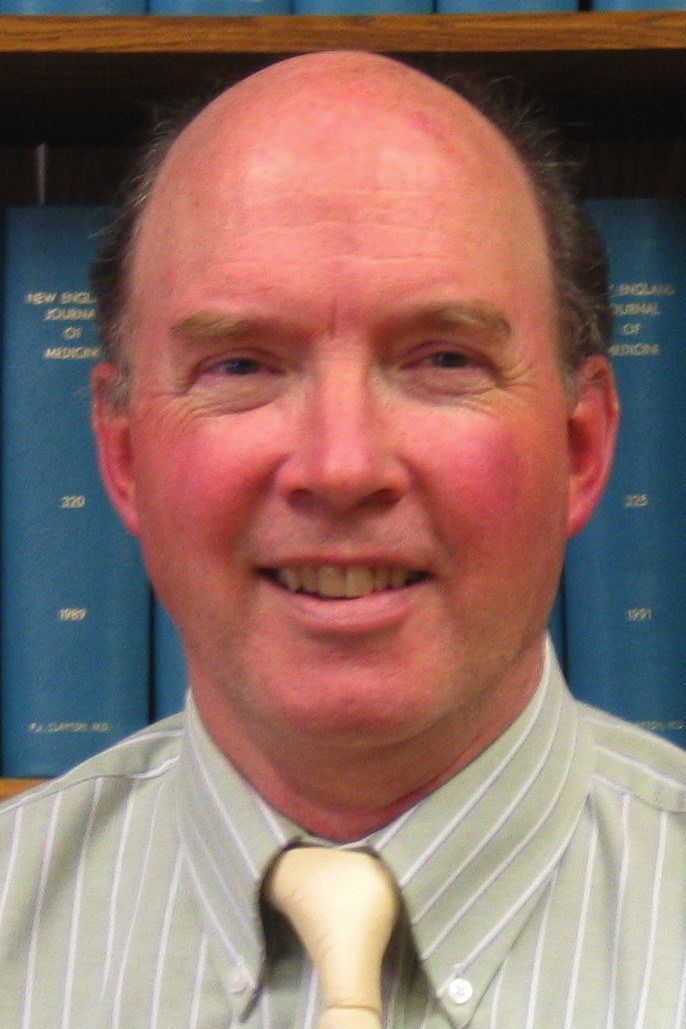 While on the Recovery High School project, Ken Winters, PhD, was a Professor in the Department of Psychiatry at the University of Minnesota, director of the Center for Adolescent Substance Abuse Research, and a Senior Scientist with the Treatment Research Institute, Philadelphia, PA. He received his B.A. from the University of Minnesota and a Ph.D. in Psychology (Clinical) from the State University of New York at Stony Brook. His primary research interests are the assessment and treatment of addictions, including adolescent drug abuse and problem gambling. He is on the editorial board of the Journal of Substance Abuse Treatment and the Journal of Child and Adolescent Substance Abuse, and has received numerous research grants from the National Institute of Health and various foundations. He was the 2008 recipient of the Research to Evidence-Based Practice Award from a national organization on effective treatment for adolescents (JMATE). Dr. Winters is a frequent speaker and trainer, and he is a consultant to many organizations, including the Hazelden Foundation, The Partnership at Drug Free.Org, National Center for Responsible Gaming, and the Mentor Foundation (an international drug abuse prevention organization). Dr. Winters held a lead role in the final development of the measurement battery in collaboration with Drs. Moberg, Finch and Lipsey. He also assembled, trained and supervised a team of interviewers/assessors who recruit and track students, collect the student and parent level data, and oversee all aspects of the data collection. Dr. Winters also participated in planning for publications and in manuscript preparation.
While on the Recovery High School project, Ken Winters, PhD, was a Professor in the Department of Psychiatry at the University of Minnesota, director of the Center for Adolescent Substance Abuse Research, and a Senior Scientist with the Treatment Research Institute, Philadelphia, PA. He received his B.A. from the University of Minnesota and a Ph.D. in Psychology (Clinical) from the State University of New York at Stony Brook. His primary research interests are the assessment and treatment of addictions, including adolescent drug abuse and problem gambling. He is on the editorial board of the Journal of Substance Abuse Treatment and the Journal of Child and Adolescent Substance Abuse, and has received numerous research grants from the National Institute of Health and various foundations. He was the 2008 recipient of the Research to Evidence-Based Practice Award from a national organization on effective treatment for adolescents (JMATE). Dr. Winters is a frequent speaker and trainer, and he is a consultant to many organizations, including the Hazelden Foundation, The Partnership at Drug Free.Org, National Center for Responsible Gaming, and the Mentor Foundation (an international drug abuse prevention organization). Dr. Winters held a lead role in the final development of the measurement battery in collaboration with Drs. Moberg, Finch and Lipsey. He also assembled, trained and supervised a team of interviewers/assessors who recruit and track students, collect the student and parent level data, and oversee all aspects of the data collection. Dr. Winters also participated in planning for publications and in manuscript preparation.
 While on the Recovery High School project, Tamara Fahnhorst worked at the Center for Adolescent Substance Abuse Research in the Department of Psychiatry at the University of Minnesota. She received her Master’s degree in Maternal and Child Public Health from the University of Minnesota in 2000. Since 1988, she has worked in the Department Psychiatry at the University of Minnesota on numerous preventive and early intervention initiatives for children and adolescents who are at risk for mental health problems and drug abuse. Ms. Fahnhorst was a psychometrician in the ADHD/ LD Clinic and has been involved in both administrative and therapeutic capacities including implementation of individual and group interventions for children and their parents. Ms. Fahnhorst is a co-author of a Brief Intervention program for adolescents who are using alcohol and drugs and their parents. She has authored several journal articles and book chapters pertaining to adolescent alcohol and drug use prevention, assessment, and intervention. Tamara worked collaboratively with Dr. Winters and the team to develop the measurement battery and to oversee issues with the institutional review board.
While on the Recovery High School project, Tamara Fahnhorst worked at the Center for Adolescent Substance Abuse Research in the Department of Psychiatry at the University of Minnesota. She received her Master’s degree in Maternal and Child Public Health from the University of Minnesota in 2000. Since 1988, she has worked in the Department Psychiatry at the University of Minnesota on numerous preventive and early intervention initiatives for children and adolescents who are at risk for mental health problems and drug abuse. Ms. Fahnhorst was a psychometrician in the ADHD/ LD Clinic and has been involved in both administrative and therapeutic capacities including implementation of individual and group interventions for children and their parents. Ms. Fahnhorst is a co-author of a Brief Intervention program for adolescents who are using alcohol and drugs and their parents. She has authored several journal articles and book chapters pertaining to adolescent alcohol and drug use prevention, assessment, and intervention. Tamara worked collaboratively with Dr. Winters and the team to develop the measurement battery and to oversee issues with the institutional review board.
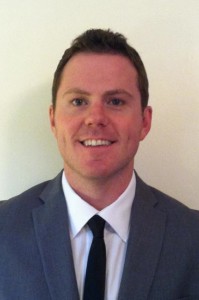 Patrick W. McIlvaine worked in the Center for Adolescent Substance Abuse Research in the Department of Psychiatry at the University of Minnesota since January, 2011. In the spring of 2011, Mr. McIlvaine received his BA in Psychology from Augsburg College, Minneapolis, MN. In his position at the U of M, Patrick has been involved with multiple federally-funded research studies with Ken Winters, Ph.D., conducting psychological assessments with youth and adults who suffer with drug and gambling addictions. He also has served as a study coordinator for a project examining the efficacy of recovery schools as continuing care for adolescents. Mr. McIlvaine acted as an outside consultant for Substance Abuse and Mental Health Administration (SAMHSA), providing literature review and assessment for Evidence-Based Services and Peer Support. While on the Recovery High School project, Patrick assisted with recruitment and conducted assessments at each measurement point. He also assisted with data cleaning and data entry tasks and with manuscript preparation.
Patrick W. McIlvaine worked in the Center for Adolescent Substance Abuse Research in the Department of Psychiatry at the University of Minnesota since January, 2011. In the spring of 2011, Mr. McIlvaine received his BA in Psychology from Augsburg College, Minneapolis, MN. In his position at the U of M, Patrick has been involved with multiple federally-funded research studies with Ken Winters, Ph.D., conducting psychological assessments with youth and adults who suffer with drug and gambling addictions. He also has served as a study coordinator for a project examining the efficacy of recovery schools as continuing care for adolescents. Mr. McIlvaine acted as an outside consultant for Substance Abuse and Mental Health Administration (SAMHSA), providing literature review and assessment for Evidence-Based Services and Peer Support. While on the Recovery High School project, Patrick assisted with recruitment and conducted assessments at each measurement point. He also assisted with data cleaning and data entry tasks and with manuscript preparation.
 Ali Nicholson received her B.S. in Justice Studies of International and Global Policy from James Madison University, Virginia in 2008. Ms. Nicholson is currently completing her Master’s in Public Health in the field of Health Promotion at the University of Minnesota. Since 2011, she has been employed with the Center for Adolescent Substance Abuse Research in the Department of Psychiatry at the University of Minnesota. Here, Ms. Nicholson works on a brief Intervention program conducting psychosocial interviews with youth who are using drugs and their parent. She also serves as a program coordinator for the Minnesota site in a multi-site study originated from Dr. Sandra Brown at the University of California – San Diego comparing an education only component with a motivational interviewing based brief intervention component aimed at reducing hazardous drinking among high school students. Ali’s role in the recovery schools project was to assist with recruitment and conduct assessments at each measurement point. She also assisted with data cleaning and data entry tasks.
Ali Nicholson received her B.S. in Justice Studies of International and Global Policy from James Madison University, Virginia in 2008. Ms. Nicholson is currently completing her Master’s in Public Health in the field of Health Promotion at the University of Minnesota. Since 2011, she has been employed with the Center for Adolescent Substance Abuse Research in the Department of Psychiatry at the University of Minnesota. Here, Ms. Nicholson works on a brief Intervention program conducting psychosocial interviews with youth who are using drugs and their parent. She also serves as a program coordinator for the Minnesota site in a multi-site study originated from Dr. Sandra Brown at the University of California – San Diego comparing an education only component with a motivational interviewing based brief intervention component aimed at reducing hazardous drinking among high school students. Ali’s role in the recovery schools project was to assist with recruitment and conduct assessments at each measurement point. She also assisted with data cleaning and data entry tasks.
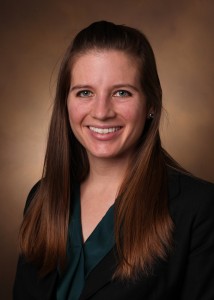
While on the Recovery High School project, Holly (Wegman) Karakos was a graduate student in the Community Research and Action Ph.D. program at Vanderbilt University in the Peabody College of Education and Human Development (degree granted May 2015). She earned her BA in Psychology from Furman University in Greenville, SC where she worked with Dr. Cinnamon Stetler to publish a meta-analysis of the effects of childhood abuse on adult medical outcomes. Holly next earned her MA in Psychology at Wake Forest University in Winston-Salem, NC where she worked with Dr. Christy Buchanan studying youth civic engagement and adolescent perceptions of parenting practices. After graduation Holly spent a year teaching middle school math and sex education at a K-12 school in Liberia, West Africa. At Vanderbilt, Holly studied the context of positive youth development and youth civic engagement at Vanderbilt, working with Dr. Andy Finch and Dr. Maury Nation. She worked with the recovery school project since August 2011 and explored the ways that recovery schools promote positive development among youth in her dissertation. For the Recovery High School project, Holly participated in local site visits and interviewed staff at treatment centers, recovery schools, and traditional schools. She also engaged in qualitative data analysis, preparation of manuscripts for publication, review of relevant literature, and presentation at national conferences.
 Robin Moskowitz Lecoanet has been conducting evaluation research since 1984. She is an attorney (licensed in Wisconsin) who spent more than 20 years at the Wisconsin Legislative Audit Bureau where she served as internal legal counsel and senior legislative program analyst, supervised teams of program evaluators, and conducted program evaluations on a wide variety of state programs. Ms. Lecoanet has spent over six years at the University of Wisconsin Population Health Institute (PHI) as the evaluation director for numerous population health-related projects. As a Researcher at PHI, she works collaboratively with federal, state, and local partners to develop program priorities and strategies and evaluation criteria and methodologies. She has provided technical assistance to local coalitions as they implement evidence-based environmental strategies that address alcohol and drug use and abuse. She is familiar with GPRA reporting requirements and procedures and conducting interviews with both adults and adolescents. On the Recovery Schools project, she conducted parent and student interviews and oversaw the work of other staff.
Robin Moskowitz Lecoanet has been conducting evaluation research since 1984. She is an attorney (licensed in Wisconsin) who spent more than 20 years at the Wisconsin Legislative Audit Bureau where she served as internal legal counsel and senior legislative program analyst, supervised teams of program evaluators, and conducted program evaluations on a wide variety of state programs. Ms. Lecoanet has spent over six years at the University of Wisconsin Population Health Institute (PHI) as the evaluation director for numerous population health-related projects. As a Researcher at PHI, she works collaboratively with federal, state, and local partners to develop program priorities and strategies and evaluation criteria and methodologies. She has provided technical assistance to local coalitions as they implement evidence-based environmental strategies that address alcohol and drug use and abuse. She is familiar with GPRA reporting requirements and procedures and conducting interviews with both adults and adolescents. On the Recovery Schools project, she conducted parent and student interviews and oversaw the work of other staff.
Connect with Vanderbilt
©2024 Vanderbilt University ·
Site Development: University Web Communications